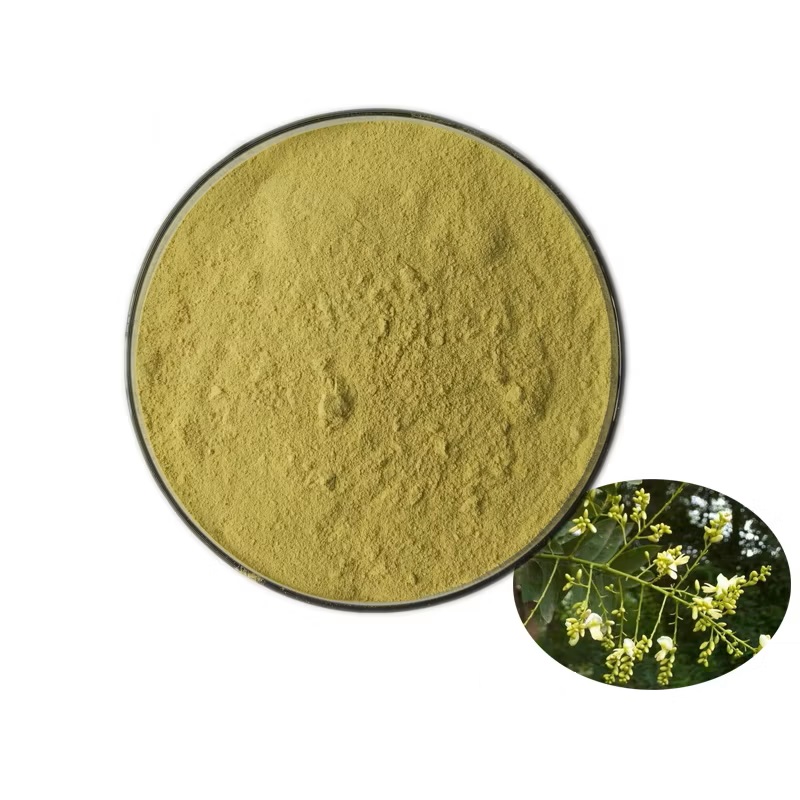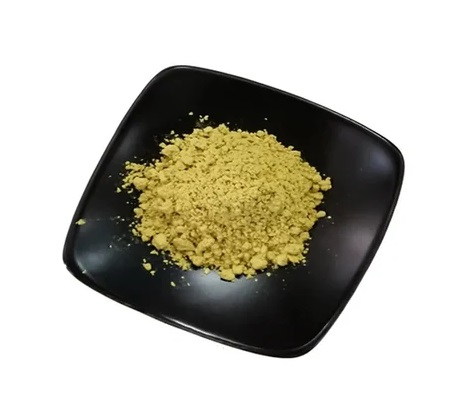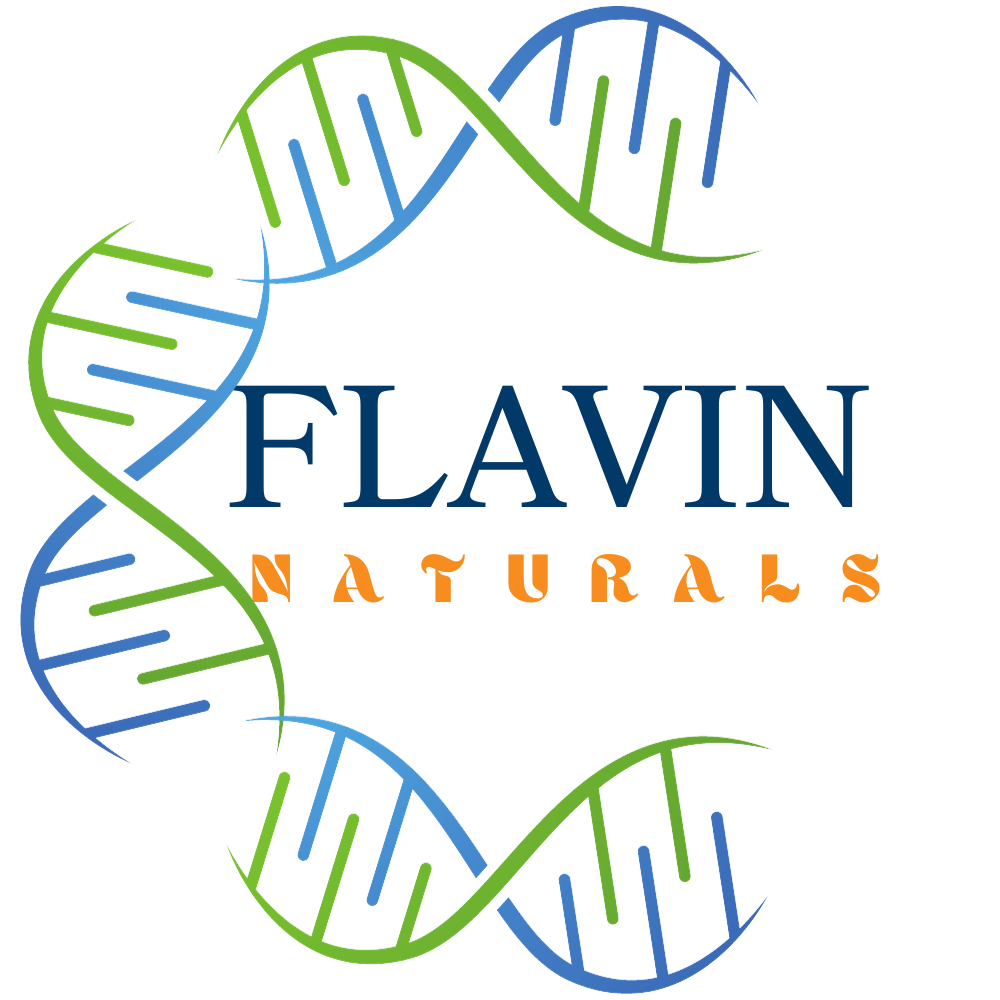Quercetin 95% Extract
Product description
Quercetin Extract: Overview and Benefits
What is Quercetin? Quercetin is a flavonoid, a type of antioxidant found naturally in many fruits, vegetables, and grains, especially in apples, onions, berries, grapes, and citrus fruits. It is known for its potent anti-inflammatory and antioxidant properties, making it a popular supplement for supporting general health and addressing various health concerns. Quercetin is often consumed as an extract, which provides a concentrated dose of the active compound.
Quercetin Extract: Quercetin extract is typically derived from plant sources like apples, onions, or capers. The extract is available in capsule, tablet, powder, or liquid form and is commonly used for its anti-inflammatory, antioxidant, and antihistamine effects. Standardized quercetin extracts are concentrated to provide higher doses of the active compound, ensuring that users get maximum therapeutic benefits.
Importance and Benefits of Quercetin Extract as a Supplement
Powerful Antioxidant Protection: Quercetin is a potent antioxidant, meaning it helps protect the body’s cells from damage caused by free radicals—unstable molecules that can contribute to oxidative stress and damage tissues. Oxidative stress is linked to aging, chronic diseases (such as cardiovascular disease, diabetes, and cancer), and neurodegenerative disorders. By neutralizing free radicals, quercetin helps reduce the risk of these conditions and supports overall health.
Anti-Inflammatory Effects: Chronic inflammation is at the root of many diseases, including arthritis, heart disease, and autoimmune conditions. Quercetin has strong anti-inflammatory properties, which help to reduce inflammation throughout the body. It can inhibit pro-inflammatory enzymes and cytokines, which are molecules that promote inflammation. By modulating the immune response, quercetin can help alleviate symptoms of inflammatory conditions like rheumatoid arthritis, asthma, and inflammatory bowel diseases (IBD) like Crohn’s disease and ulcerative colitis.
Supports Cardiovascular Health: Quercetin has several cardiovascular benefits. It helps reduce blood pressure by improving blood vessel function, promoting better circulation, and preventing the constriction of blood vessels. Quercetin also has the ability to lower LDL cholesterol (the “bad” cholesterol) and prevent the oxidation of LDL, a key factor in the development of atherosclerosis (hardening and narrowing of the arteries). Additionally, quercetin has been shown to improve endothelial function, which is essential for maintaining healthy blood vessels and preventing cardiovascular diseases such as heart disease and stroke.
Enhances Immune Function: Quercetin is known to enhance immune function by increasing the activity of immune cells, such as macrophages and T cells, that help fight off infections. Quercetin can help the body better defend against viruses, bacteria, and other pathogens. Its antioxidant and anti-inflammatory properties also contribute to a well-functioning immune system, which is crucial for overall health and the prevention of infections.
Supports Allergy Relief: Quercetin acts as a natural antihistamine, making it useful for individuals suffering from seasonal allergies, hay fever, or other allergic reactions. Histamine is a compound released during an allergic reaction that causes symptoms like itching, swelling, and inflammation. Quercetin can stabilize mast cells (which release histamine) and reduce the release of histamine in response to allergens. This makes quercetin an effective natural remedy for reducing symptoms of allergies, such as runny nose, sneezing, and itching.
May Aid in Weight Loss: Some studies suggest that quercetin may help support weight loss by improving fat metabolism and reducing the accumulation of fat cells. Quercetin has been shown to activate enzymes that promote fat burning, and it may also help reduce inflammation associated with obesity. Additionally, quercetin may help improve insulin sensitivity, which is important for maintaining healthy blood sugar levels and reducing the risk of type 2 diabetes.
Improves Exercise Performance and Recovery: Quercetin has been shown to enhance endurance and exercise performance by improving oxygen utilization during physical activity. It may help reduce exercise-induced oxidative stress and muscle damage, leading to quicker recovery times and reduced muscle soreness. Some studies suggest that quercetin supplementation may improve aerobic capacity, making it a popular supplement among athletes and fitness enthusiasts.
Supports Brain Health: Quercetin’s antioxidant and anti-inflammatory properties extend to brain health as well. By reducing oxidative stress and inflammation in the brain, quercetin may help protect against neurodegenerative diseases like Alzheimer’s and Parkinson’s. It may also improve cognitive function and memory by protecting neurons from damage and supporting overall brain health. In addition, quercetin has been studied for its potential to increase the growth of new neurons, which is important for brain plasticity and cognitive function.
Supports Healthy Blood Sugar Levels: Quercetin may help regulate blood sugar levels by improving insulin sensitivity. Insulin resistance is a key factor in the development of type 2 diabetes, and quercetin may help mitigate this issue by increasing the effectiveness of insulin in transporting glucose into cells. It may also reduce the accumulation of glucose in the bloodstream by supporting healthy pancreatic function.
Protects Against Cancer: Quercetin has shown promise as a potential anti-cancer agent in several studies. Its antioxidant properties help protect cells from DNA damage, which is a critical factor in the development of cancer. Quercetin may also help inhibit the growth of cancer cells by inducing apoptosis (programmed cell death) and slowing down the proliferation of tumor cells. Some research suggests that quercetin may be particularly beneficial in preventing or managing certain types of cancer, including breast, prostate, and colon cancer.


